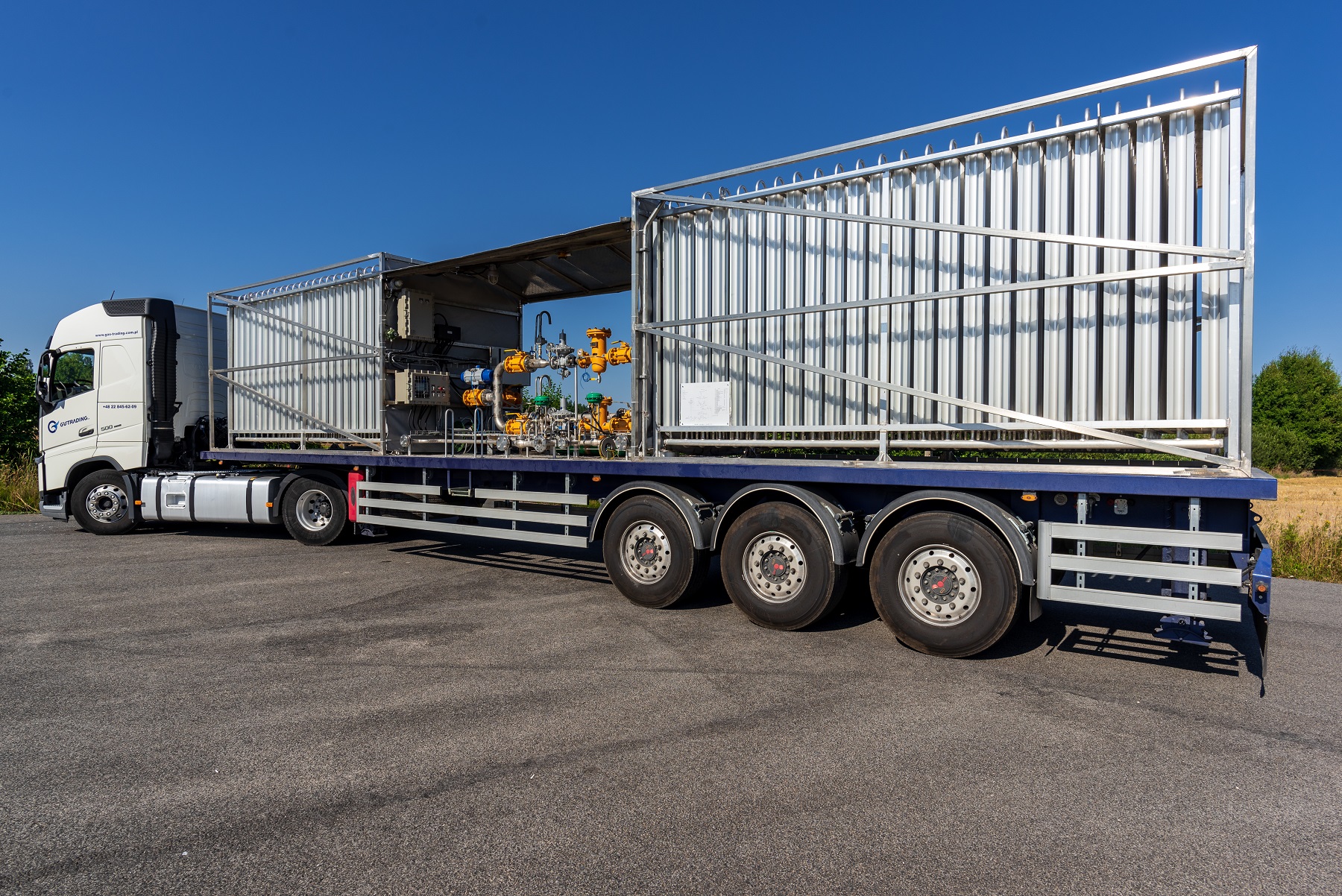News
15.04.2021 Mobile LNG regasification units help provide access to natural gas
Gas-Trading, a PGNiG Group company, now owns three mobile liquefied natural gas regasification units used as a back-up or emergency source of gas fuel supply.
‘Mobile regasification units are one of the best and fastest-to-deploy solutions providing temporary or emergency natural gas supply. They help deliver gas to customers while the target permanent gas supply system is being constructed. They also help to quickly restore gas supply to customers in areas affected by a network failure. In the event of a pipeline failure or pressure drop, they work as ‘first aid’ until the problem is resolved,’ said Robert Perkowski, Vice-President of the PGNiG Management Board, Operations.
Mobile LNG regasification units also prove useful as an interim solution where stationary LNG regasification plants are to be built. One such unit was used during construction of a stationary LNG regasification facility for LG Electronics’ plant in Wrocław. Gas-Trading teamed up with PGNiG Obrót Detaliczny to build a stationary regasification plant for the Korean customer. Until its start-up in November 2020, a mobile regasification unit served as an interim source of gas supply. Mobile units can also be used as a back-up source of supply for consumers in certain locations during winter months when low temperatures cause temporary spikes in natural gas demand.
‘Providing businesses in unserved areas with access to gas fuel is currently a top priority for Gas-Trading S.A. As a provider of stationary regasification infrastructure construction services, we strive to meet the needs of customers who expect quick access to natural gas fuel. With our mobile regasification services, we provide security to our customers in case of an equipment failure or increased demand for gas,’ said Tymoteusz Pruchnik, President of the Management Board of Gas-Trading SA, a company offering mobile LNG regasification services.
In addition to an LNG tanker truck, a mobile LNG regasification unit consists of two ambient air vaporisers working alternately, an electric heater to ensure proper gas temperature, odorisation system to give the gas its characteristic smell, and a pressure reduction system. Units are fully automated and as such do not require continuous operator attention. They are also equipped with telemetry systems that enable remote monitoring and control of their key parameters and operations. Each unit has a regasification capacity of around 22 tonnes, or more than one tanker load of LNG per day. After regasification, 29,000 cubic meters of natural gas is obtained, providing enough energy to heat a house for about 13 years.






